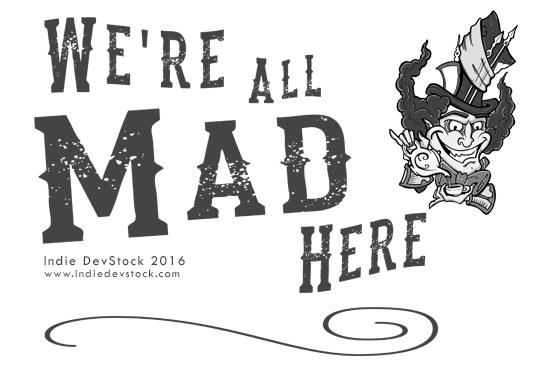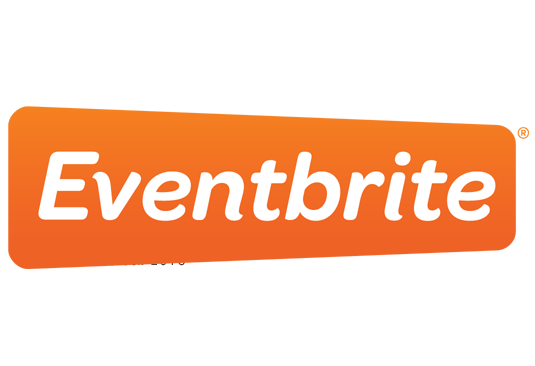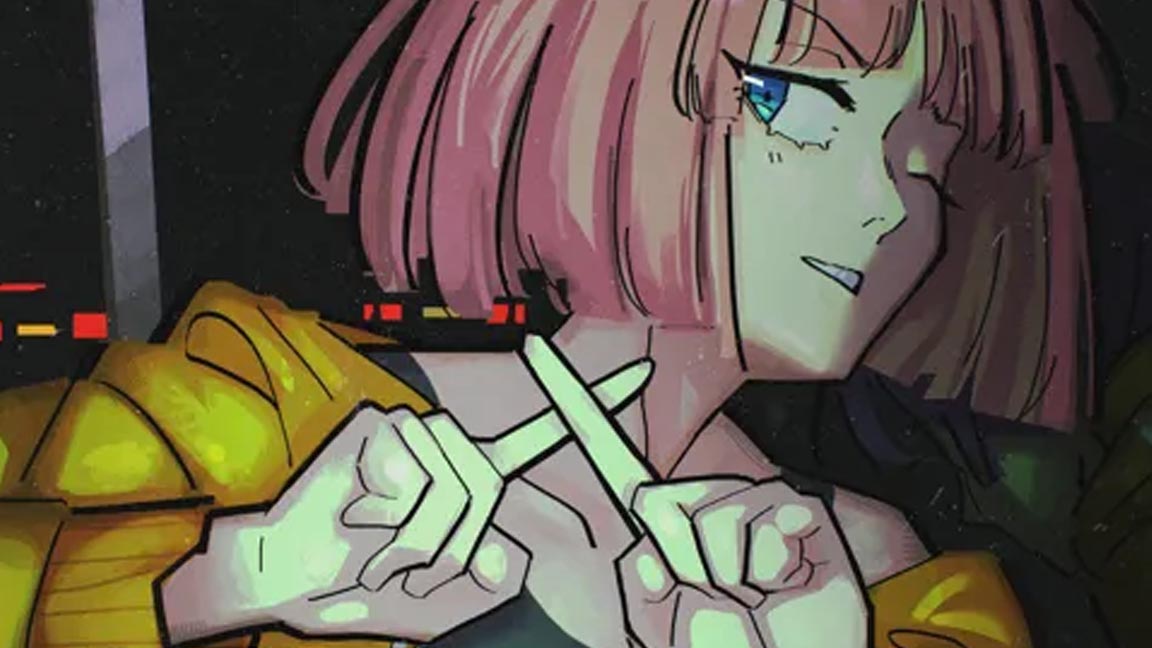How to organize a conference
Here are seven things you have to prepare if you want to start your own design event.

So you want to organize a conference? Fantastic! To be honest, organizing a conference is a great way to give back to your industry, your community and yourself. It's a chance for you to bring people together. And if you don't know how to network, running your own event can be a great opportunity to swap letterpress business cards with others in your field and beyond.
But what does it take to organize a successful conference? How difficult is it? And, most importantly, where do you start?
Here are the seven steps I used to organize Indie DevStock, a conference coming to Nashville, Tennessee in September 2016.
01. Find a co-organizer

Although it's possible, I would not recommend organizing a conference on your own. Remember, conferences are a way for people to network. If you're in a room — all by yourself — trying to decide how best to bring people together, you're already off to a bad start.
Collaboration is the key! Just having one other person around to help make the decisions, to help with the administrative tasks and to, quite honestly, be there for moral support, goes a long way.
In the case of Indie DevStock, I enlisted the help of some trusted friends; both in and out of the developer/designer community.
Reach out to others in your community; ask friends; ask family; share the experience and make it memorable.
02. Select a theme

You wouldn't think this step is important, but it is. It's the 'glue' that holds your conference together. Don't stress too much about it, though; it doesn't need to be complicated. In fact, it's better if it's not.
When deciding on your theme, there are a few things to consider:
- Who is your target audience?
- What is your message?
- What do you want your attendees to get out of your conference?
Meaning, what's in it for them?
Once you know the answer to these questions, deciding on a theme becomes a lot easier.
Our theme for Indie DevStock, 'We're All Mad Here', was a result of answering these questions. Take a look:
- Who is your target audience?Primarily folks who are currently independent developers and designers, or folks who are considering 'becoming an indie'.
- What is your message?That everyone who wishes to pursue life as an indie, can do it — regardless of how 'mad' it seems. Sometimes, you just need to embrace the madness.
- What do you want your attendees to get out of it? What's in it for them?Firstly, we want our attendees to have fun and make new, lasting connections within the community. We also want them to walk away with a sense of empowerment that they, too, can make it as an indie. Finally, we planned a few tech sessions to help them increase their skills — without which, success is harder to achieve.
Once you know the answers to these questions, you'll be able to decide on your theme, and you'll be able to have a cohesive conference.
03. Find a venue and set a date

Location. Location. Location. You've likely heard that term used before. That's because location is so important.
While there are countless reasons for finding the right location (and selecting the right date), there are three that stand out the most. Your venue should be:
- Easy to accessIs it close to the airport? Easy to find? Will you event get snowed out? How hard will travel be?
- AffordableHow much will it cost your out-of-town attendees for a hotel room? What about parking costs?
- Offer other attractions outside of your eventWhat will your attendees do during breaks and/or after the day's events? What are the weather conditions during that time?
Even if your conference is a one-day event, location is important. Remember, it's not just about the speakers and networking; it's about the entire experience. How was the food? What else did you do? Did you see any 'sights' while you visited the city? These are just a few things attendees will remember and talk about. If you want them to have a good time, make it more than just a conference.
Note: A word about dates. If possible, find out when other conferences in your industry are happening. It's best to avoid scheduling your conference too close to ones that may cover the same topics.
04. Decide on speakers
With your theme set and your venue booked, you're now ready to start recruiting speakers.
There are essentially two ways to recruit speakers:
- Invite people you want
- Have an open call (aka, a call for papers)
For Indie DevStock, our speakers were both invited and selected from our open call. We knew there were a few speakers we absolutely wanted, so we reached out to them. Were there rejections? Sure. It's part of the process. But don't let that discourage you.
We also knew there were speakers out there we didn't know about. We put the call out and have been receiving a lot of great submissions.
What about speakers compensation? That's a good question. At a minimum, expect to cover the cost of their accommodations and their conference ticket. If your budget allows, covering a speaker's travel costs is ideal.
Whatever you decide, clearly communicate your decision to your speakers. There's nothing worse than a misunderstanding because of failed communication.
05. Secure sponsors
If you decide you want sponsorship, that's fine. But remember, this isn't about getting money for YOUR event — it's not just about selling advertising space; it's about finding an individual or group with whom you can establish a deeper, lasting relationship between you, them and your attendees.
When selecting sponsors, keep your attendees in mind. Try to find a good match. For example, you wouldn't reach out to a dog food company to sponsor your developer conference. Well, not unless your theme had something to do with dogs, I suppose.
Also, it's important to provide your potential sponsors with the basics. Tell them about the event, who will be attending and what's included with their sponsorship.
Remember, it's all about communication.
06. Set up ticketing system
Ticket sales are, by far, one of the most stressful parts of organizing a conference. You need to decide how much, how many, are refunds and/or transfers allowed, what payment methods will be accepted... and the list goes on.

We wanted something easy-to-use and easy-to-maintain. We looked at a few different options, including selling the tickets from our own site. Ultimately, we decided to go with Eventbrite.
Eventbrite is a self-service ticketing platform. Among the many features Eventbrite has to offer, you're able to add multiple ticket types, set start and end dates for sales, offer discounts and keep track of attendees.
Another great feature of Eventbrite is the ability to set up an event page. We set up the Indie DevStock event page in a matter of minutes. If you're not a webmaster, don't worry. Eventbrite's event page manager is easy-to-use and their support is fantastic.
07. Market your event

Wow! You're almost there. You have your helpers, your theme, your venue, your speakers, your sponsors and a way to sell tickets. Now, you just need attendees!
Marketing your event is important. People aren't just going to show-up. If you're the new kid on the conference block, people might not even know your event is happening.
Here are a few tips to help spread the word:
- Start a newsletter, just don't be 'spammy' about it
- Share the event on social media
- Ask your sponsors to share the event on social media
- Have your speakers blog about it
- Post on other sites, like Lanyrd and LinkedIn
Another important tip about marketing is to let potential attendees know what to expect if they attend — the 'why should you go' sort of message. With so many conferences from which to choose, why should they go to yours? Why should they spend the money? What makes YOUR conference different?
In today's economy, people are more conscience about spending money. If you want them to come to your event, give them a reason and refer back to your theme.
So that's it! Those are the seven steps we used to organize Indie DevStock. If you have any other tips, please feel free to share them in the comments.
Note: Although our conference hasn't happened yet, we are hopeful and optimistic it'll be a success. Hey, if nothing else, we're planning to have one heck-of-a-fun weekend. Who knows... maybe we'll see you there: Nashville, Tennessee, 16-17 September 2016 at the Gaylord Opryland Resort & Convention Center.
Liked this? Try these...
- 5 tips for creating an event logo
- Generate New York 2016: an amazing day for web designers
- Useful and inspiring flyer templates

Thank you for reading 5 articles this month* Join now for unlimited access
Enjoy your first month for just £1 / $1 / €1
*Read 5 free articles per month without a subscription

Join now for unlimited access
Try first month for just £1 / $1 / €1
Get the Creative Bloq Newsletter
Daily design news, reviews, how-tos and more, as picked by the editors.

Tammy is an independent creative professional, author of Apple Game Frameworks and Technologies, and the maker behind the AdventureGameKit – a custom SpriteKit framework for building point and click adventure games. As an innovative problem solver and industry leader, Tammy enjoys working on projects from content creation – including books, tutorials, videos, and podcasts – to the design and development of cross-platform applications and games. For Creative Bloq, she has written about an array of subjects, including animation, web design and character design.
